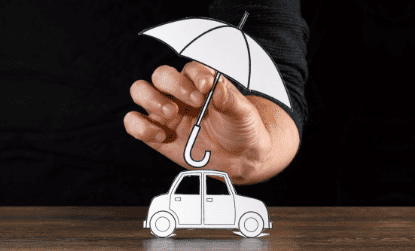A car warranty is a lifesaver in many ways, and yet it’s also easy to get it voided. A car warranty is essentially a contract between a car owner and the carmaker; and many car owners have learned the hard way that it can be quite easy to fail to hold up their end of the bargain. And the moment they do, there goes their warranty.
Steer clear of this unfortunate scenario. Here are 6 ways how:
1. Use only fluids that are specified by the carmaker.
Carmakers specify which fluids you should use to ensure the best performance by your car, and that’s based on serious research. That should be reassuring information for any car owner, and enough reason not to experiment and risk getting their warranty voided.
Using the wrong fluid could cause insufficient lubrication, and eventually engine failure, and that’s warranted reason for the carmaker to void a warranty.
2. Make sure you keep all your receipts.
File the receipts for all maintenance work done at facilities outside of the dealership while your car is still covered by manufacturer warranty. It’s fine to have your vehicle serviced at quick lubes, your local repair facility, or anywhere that gives you a good deal. Just make sure that your non-dealership service provider is using the carmaker-specified fluids and OEM (original equipment manufacturer) quality filters and you keep all the receipts.
Alternatively, if you stick with a dealership, dealers are required to keep record of all work done on your car, so that when you need to make a warranty claim, the dealership simply electronically transfers all vehicle records to the personnel in charge with processing the claim.
3. Stick to scheduled maintenance work.
It can get tempting to skip the minor maintenance jobs and save a few bucks, but that can actually backfire. The last thing you need is to end up with is a voided warranty that could have been easily avoided.
4. Avoid using nonconventional tire/wheel combinations or modifying the suspension.
The smart move is to leave your tires and wheels alone. Resisting the trend of installing aftermarket wheels and tires, or making dramatic suspension modifications using extreme lift or lower kits may just end up saving you from a whole lot of grief later on caused by your vehicle platform being compromised.
The problems introduced by these modifications can easily be traced by the carmaker on inspection and can result in your claim getting denied.
5. Avoid making any performance modifications.
Just don’t—that is the best way to avoid introducing any performance problems instead of enhancing performance. Likely there’s always a thing or two you don’t know about how your vehicle is supposed to perform and the specific modifications that will cause harm instead.
6. Don’t use your vehicle to tow a trailer that’s it’s not designed to handle.
When you tow a trailer carrying a heavier load than a dirt bike, for example, your vehicle will require the following:
- Increased cooling system capacity
- Auxiliary transmission oil cooling
- Reinforced rear frame area to support the hitch receiver
- Beefed-up suspension to handle the additional weight
- Heavy-duty brakes to stop the increased load
- Special wiring to power the trailer lighting.
If not properly equipped, your vehicle will be giving you serious trouble:
- An overheated engine
- Overheating of the transmission (and internal damage)
- Frame damage
- Suspension damage
- Excessive brake wear
- Compromised wiring (hence the electrical shorts and malfunction of lights)
Make your car warranty work for you until the very last day. Avoid making any misguided moves that can leave you with a voided warranty and seriously depleted funds.
And if your warranty is nearing its expiration date, now’s a good time to start looking at reputable vehicle service contract options.
Give Evercare Protection a call today to see if we’re a good fit for you.

